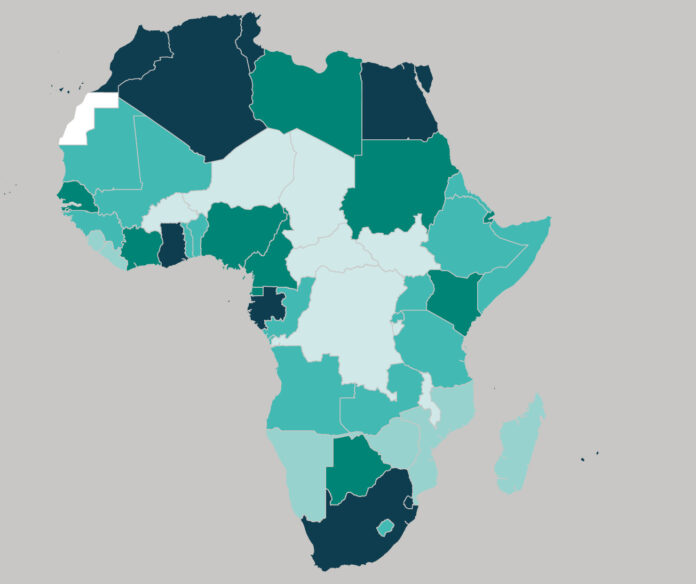Africa, a continent of immense diversity and potential, stands at a pivotal moment in its history. Despite abundant resources, a vibrant youth population, and a rich cultural heritage, Africa continues to face challenges that hinder its collective progress. At the heart of many of these challenges lies a fundamental issue: disunity. Until Africans begin to see themselves as one people—transcending borders, ethnicities, and colonial legacies—the continent will struggle to realize its full potential and will remain behind other regions in development, peace, and global influence.
The Legacy of Division: Colonial Borders and Fragmented Identities
The roots of Africa’s disunity can be traced to the Berlin Conference of 1884–1885, where European powers carved the continent into 54 nations with little regard for existing ethnic, cultural, or linguistic realities48. These artificial borders forced together diverse groups, sowing seeds of discord and competition rather than cooperation.
“The continent’s 54 nations, arbitrarily carved by European imperialists at the Berlin Conference of 1884-1885, were never designed for unity but for division.”4
This legacy of fragmentation is not merely historical. It continues to ignite ethnic and territorial conflicts, as seen in the Tigray conflict in Ethiopia, the Anglophone crisis in Cameroon, and persistent instability in the Democratic Republic of Congo48. These divisions are further exacerbated by linguistic barriers, with many African countries engaging more with their former colonial masters than with their neighbors4.
The High Cost of Disunity
Disunity has far-reaching consequences for Africa’s development:
-
Political Instability: When national identity is weak and loyalty to the state is fragile, countries become vulnerable to internal conflict and corruption. The tragic case of Sudan and South Sudan, where decades of ethnic and religious conflict led to a painful split and ongoing instability, exemplifies this danger38.
-
Economic Fragmentation: Small, isolated markets struggle to attract investment and industrialize. Intra-African trade remains low compared to other regions, limiting economic growth and job creation1.
-
Social and Cultural Barriers: With over 2,000 languages and countless ethnic groups, Africa’s diversity should be a strength. Yet, without a unifying identity, it often becomes a source of mistrust and division48.
The Power and Promise of Unity
History and contemporary African thought leaders have long recognized that unity is not just a lofty ideal but a practical necessity for progress. Kwame Nkrumah, a leading proponent of Pan-Africanism, famously declared:
When Africans see themselves as one people, several transformative benefits emerge:
-
Economic Strength: A unified Africa would create a formidable market, attracting foreign investment, boosting intra-African trade, and enabling better negotiation of trade deals. This economic clout could reduce dependence on external aid and foster self-sufficiency1.
-
Infrastructure Development: Pooling resources and expertise would allow for the development of critical infrastructure—transport, energy, telecommunications—connecting countries and facilitating regional integration1.
-
Peace and Security: Shared security initiatives and intelligence would better address common threats like terrorism and cross-border conflicts, creating a stable environment for growth1.
-
Knowledge and Innovation: Collaboration in education, research, and technology would accelerate solutions to shared challenges in healthcare, agriculture, and climate change1.
-
Cultural Renaissance: Celebrating Africa’s rich diversity while fostering a sense of common identity would enhance social cohesion, mutual understanding, and pride24.
Pan-Africanism: The Vision and the Challenge
The Pan-African vision, articulated by leaders such as Nkrumah and Haile Selassie, was not about erasing differences but about forging a common purpose rooted in shared history and destiny56. This vision recognized that Africa’s strength lies in its unity, not in the perpetuation of artificial divisions.
Yet, achieving this unity is not straightforward. The quest for African identity is complex, shaped by the scars of colonialism, the trauma of the slave trade, and the ongoing influence of global powers28. Some argue that imposed unity risks suppressing authentic self-expression, while others contend that only by embracing their shared “African-ness” can Africans overcome external domination and internal strife246.
The Role of Leadership and Institutions
Efforts to foster unity have not been absent. The Organization of African Unity (OAU) and its successor, the African Union (AU), were established to promote solidarity, peace, and development across the continent710. The AU’s Agenda 2063 is a bold blueprint for transforming Africa into a global powerhouse, emphasizing unity, self-determination, and collective prosperity7.
However, progress has been slow and uneven. Infrastructure deficits, political instability, and economic disparities persist, highlighting the need for stronger commitment from African leaders and citizens alike710. The AU’s success, much like the European Union’s, depends on the dedication of member states to overcome internal divisions and external challenges7.
Identity as the Foundation for Genuine Unity
True unity does not require homogeneity. Rather, it demands respect for diversity and a commitment to shared goals2. The search for African identity is not opposed to global engagement; it provides the foundation for meaningful participation in the world2. As one scholar notes:
“True unity doesn’t erase differences but respects and celebrates them, allowing each culture to contribute its unique wisdom to our shared human experience.”2
Reclaiming cultural identity is not about blaming the past but about healing and establishing the psychological and cultural wellness needed to build a more equitable future2.
The Road Ahead: From Fragmentation to Solidarity
To move forward, Africans must:
-
Reclaim and Affirm a Shared Identity: Embrace the concept of “African-ness” as a unifying force, rooted in communal values and shared history246.
-
Promote Intra-African Collaboration: Prioritize trade, education, and cultural exchange within Africa, reducing reliance on external actors14.
-
Strengthen Regional and Continental Institutions: Support the AU and other bodies in their efforts to promote peace, development, and integration710.
-
Foster Inclusive Leadership: Encourage leaders who prioritize unity, transparency, and the common good over narrow ethnic or political interests7.
-
Educate and Inspire the Next Generation: Instill in young Africans a sense of pride in their heritage and a commitment to building a united continent26.
Conclusion: The Imperative of Unity
Africa’s challenges are daunting, but its potential is even greater. The continent’s future hinges on its ability to transcend the divisions of the past and embrace a shared destiny. As Kwame Nkrumah warned, “We must unite now or perish.”59 Until Africans see themselves as one people—bound by history, culture, and common purpose—they will continue to be held back by the very divisions imposed upon them.
The journey toward unity is neither easy nor quick. It requires honest reckoning with history, visionary leadership, and the collective will of Africa’s peoples. But the rewards—a peaceful, prosperous, and influential Africa—are well worth the effort. Only by seeing themselves as one can Africans truly move forward together, leaving behind the shadows of division for the promise of a brighter future.
By George Prince
Citations:
- https://www.africandev.org/post/the-power-of-african-unity-driving-development-through-solidarity
- https://www.faf.ae/home/2025/3/29/the-paradox-of-identity-and-unity-understanding-african-cultural-identity-in-a-globalized-world
- https://www.savemyexams.com/a-level/geography/edexcel/18/revision-notes/11-migration-identity-and-sovereignty/11-4-threats-to-national-sovereignty/11-4-3-consequences-of-disunity/
- https://www.africanleadershipmagazine.co.uk/africas-fragmented-nations-and-the-quest-for-unity/
- https://thisisafrica.me/politics-and-society/10-quotes-by-kwame-nkrumah/
- https://face2faceafrica.com/article/celebrate-africa-day-with-10-powerful-quotes-by-great-african-leaders-on-african-unity
- https://www.africanleadershipmagazine.co.uk/the-impact-of-au-and-its-summit-on-africa-a-comparative-analysis-with-the-eu/
- https://dj.univ-danubius.ro/index.php/AUDRI/article/download/1261/1381/4101
- https://thisisafrica.me/politics-and-society/africa-day-10-quotes-from-african-leaders/
- https://www.ebsco.com/research-starters/history/organization-african-unity-moves-establish-african-union
- https://www.dbsa.org/article/why-unity-africa-can-be-beneficial-development
- https://au.int/en/overview
- https://www.thecairoreview.com/essays/enabling-evolution-the-role-of-knowledge-production-in-the-development-of-african-unity/
- https://www.reddit.com/r/quotes/comments/87b706/africa_is_one_continent_one_people_and_one_nation/
- https://au.int/en/au-nutshell
- https://www.modernghana.com/news/225994/one-nation-different-people.html
- https://en.wikipedia.org/wiki/Organisation_of_African_Unity
- https://aithor.com/essay-examples/exploring-the-evolution-and-significance-of-african-identity-in-the-modern-world
- https://en.wikipedia.org/wiki/Pan-Africanism
- https://theconversation.com/60-years-of-african-unity-whats-failed-and-whats-succeeded-203935
- https://www.africanunion-un.org/post/african-culture-versatile-approach-to-realize-the-africa-we-want
- https://www.sociostudies.org/journal/articles/1556450/
- https://moderndiplomacy.eu/2024/04/14/how-geopolitical-changes-influencing-africas-unity-and-development/
- http://krepublishers.com/02-Journals/JSSA/JSSA-06-0-000-15-Web/JSSA-06-2-000-15-Abst-PDF/JSSA-6-2-235-127-15-Mashau-T-S/JSSA-6-2-235-127-15-Mashau-T-S-Tx%5B8%5D.pmd.pdf
- https://repository.up.ac.za/bitstream/handle/2263/58299/Allain_African_2002.pdf?sequence=3
- https://opinion.premiumtimesng.com/2018/05/18/the-dangers-and-evil-consequences-of-sectarianism-and-disunity-in-the-ummah-by-murtadha-gusau/
- https://comment.org/the-wounds-of-disunity/
- https://peoplesworld.org/article/zones-of-conflict-challenge-to-african-unity/
- http://www.eolss.net/sample-chapters/c16/e1-48-49.pdf
- https://www.accord.org.za/conflict-trends/east-africas-path-to-unity-community-growth-and-regional-peace-initiatives-in-the-democratic-republic-of-the-congo/
- http://policyresearch.limpopo.gov.za/bitstream/handle/123456789/1136/Diversity%20in%20Africa%20%20a%20Cause%20of%20Disunity.pdf?sequence=1
- https://saiia.org.za/research/the-demise-of-african-unity/
- https://www.aehnetwork.org/blog/historical-legacies-and-african-development/
- https://wasscehistorytextbook.com/9-problems-of-independent-west-african-states/
- https://www.nytimes.com/1982/08/12/world/the-disunity-of-africans-news-analysis.html
- https://uk.pinterest.com/pin/on-the-case-of-africans-and-identity–829858668821521571/
- https://earthafricacurio.com/information/african-proverbs-quotes
- https://www.goodreads.com/author/quotes/414621.Kwame_Nkrumah
- https://www.e-ir.info/2014/05/23/the-african-union-organization-of-african-unity-2-0-or-regional-renaissance/
- https://www.proverbshub.com/african-topic/unity/
- https://www.azquotes.com/author/10844-Kwame_Nkrumah
- https://www.pulse.ng/articles/news/world/africa-day-quotes-of-prominent-african-leaders-2024072704131426978
- https://ibw21.org/black-world-history/50-marcus-garvey-quotes/
- https://abdullahiyakubu.wordpress.com/2017/12/28/african-quotes-on-unity-and-community/
- https://www.southernliving.com/culture/black-history-quotes
- https://repository.kulib.kyoto-u.ac.jp/dspace/bitstream/2433/230172/1/ASM_S_56_21.pdf
- https://registry.africa/the-role-of-african-culture-in-development-across-the-continent-and-online/
- https://onpolicy.org/the-construction-of-african-identities-and-values-the-need-to-bridge-the-gap-between-ideologies-research-and-practice/
- https://standard.gm/fragmentation-of-solidarity-the-detrimental-effect-of-disunity-in-the-muslim-and-arab-world/
- https://www.wilsoncenter.org/blog-post/colonial-borders-in-africa-improper-design-and-its-impact-on-african-borderland-communities
- https://www.scirp.org/journal/paperinformation?paperid=73724
- https://www.ajol.info/index.php/afrrev/article/view/69251/57286
- https://www.brookings.edu/articles/ethnicity-an-african-predicament/
- https://www.goodreads.com/quotes/tag/african-quotes
- https://au-watch.org/quotes-from-emperor-haile-selassie/
- https://saiia.org.za/research/african-unity-will-remain-illusionary-without-values/
- https://worldhistoryedu.com/quote-by-kwame-nkrumah-on-africa-unity/
- https://www.giga-hamburg.de/de/publikationen/giga-focus/organization-of-african-unity-an-optimists-appraisal-60-years-on
Answer from Perplexity: pplx.ai/share











